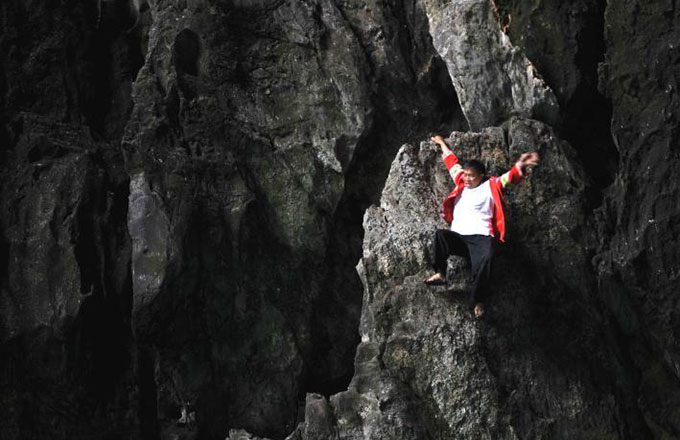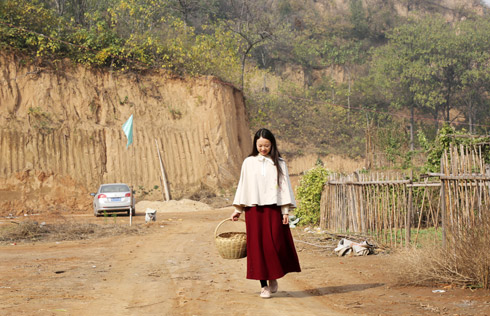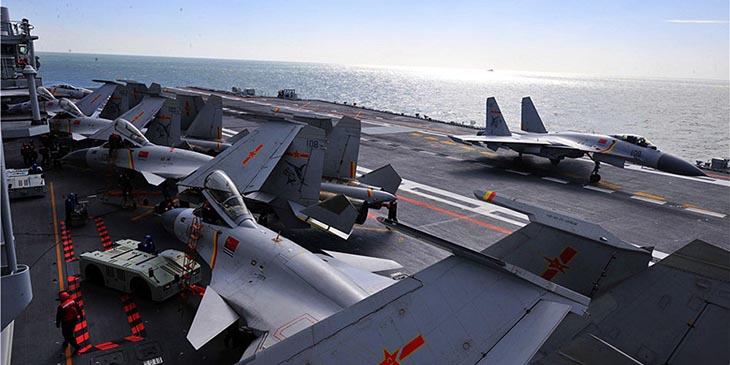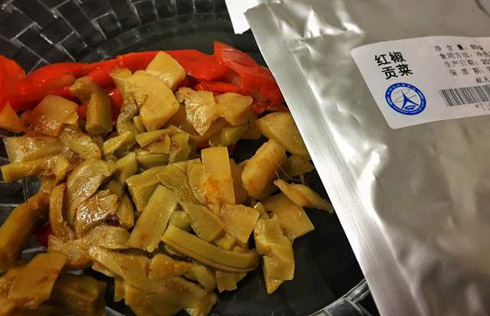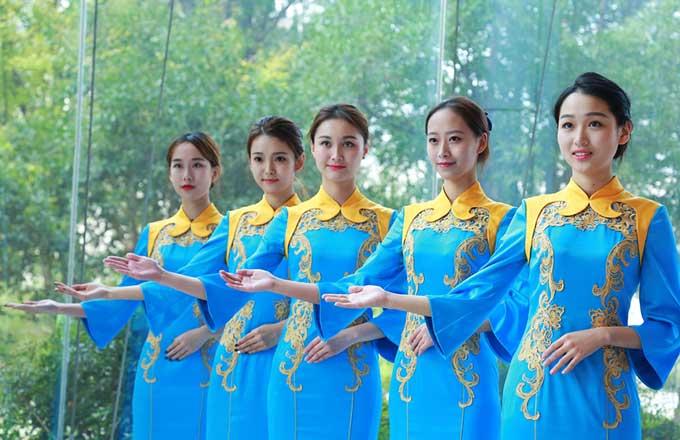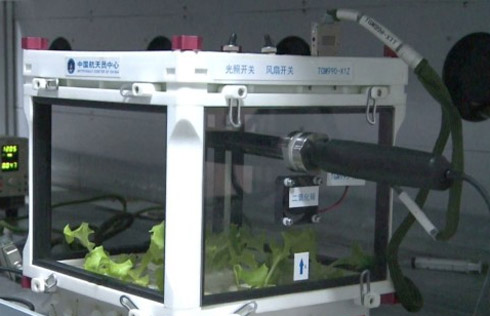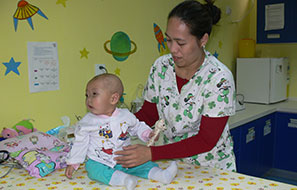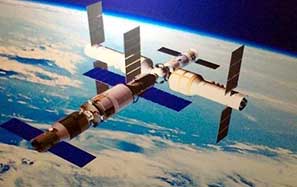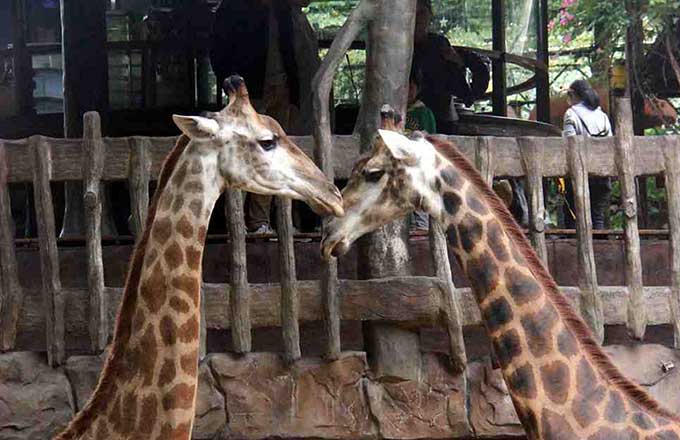Beijingers cut fireworks celebration for clear sky
BEIJING - Sales of fireworks in Beijing have dropped significantly this Spring Festival holiday season, as residents have exercised restraint in order to ward off smog, a government official said Sunday.
More than 260,000 cartons of fireworks were sold from February 5 to Saturday night, or Lunar New Year's Eve, down 37 percent from the 410,000 cartons sold during the same period last year, said Zhou Zhengyu, deputy secretary-general of the municipal government.
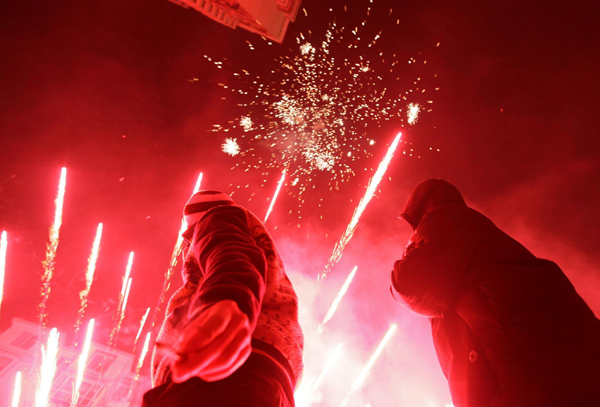 |
|
Residents watch after setting up fireworks as part of Chinese new year celebrations, in central Beijing early Feb 10, 2013. [Photo/Agencies] |
The Chinese traditionally celebrate the Spring Festival holiday with large amounts of fireworks, as custom dictates that the noise and fire created by the pyrotechnics can fend off evil spirits. The fireworks displays usually start on Lunar New Year's Eve in major cities like Beijing.
On Saturday night, fireworks injured 25 people and triggered 83 fire-related emergencies, down 28.6 percent and 44.6 percent, respectively, from the same period last year, according to a statement released early Sunday by the Beijing Office on Fireworks and Firecrackers.
Zhou said municipal authorities have organized almost a million people, including police, firefighters and volunteers, to minimize accidents and ensure a safe holiday.
Police helicopters have also been mobilized to monitor fire-prone areas and transmit emergency alerts to ground control, he added.
Zhou attributed the restraint displayed by Beijingers to a government initiative calling on the public to reduce the use of fireworks to prevent air pollution.
Multiple Chinese cities were hit with dense smog in January, leading some to argue that fireworks should be restricted or banned during the Spring Festival holiday, which began on Saturday.
From January 1 to 28, Beijing had 23 smoggy days, about 10 more than the annual average during the same period over the last 10 years and the most since 1954.
The average density of PM2.5, or particulate matter less than 2.5 microns in diameter, in January was 180 micrograms per cubic meter in Beijing, about 30 percent higher than that recorded during the same period from 2009 to 2011, according to meteorological data.
After Lunar New Year's Eve in 2012, the density of PM2.5 increased sharply to 1,593 micrograms per cubic meter at one downtown monitoring station, or 1.5 times higher than this year's most polluted day.
According to the Beijing Municipal Environmental Monitoring Center (BMEMC), the city's PM 2.5 density peaked at midnight to roughly 500 micrograms per cubic meter and then eased to less than 300 micrograms per cubic meter.
BMEMC director Zhang Dawei said a mild north wind helped ease the air pollution Saturday night.
"Although the figure was dwarfed by that of last year, the negative impact of fireworks on air quality is very clear," said Zhang, adding that PM2.5 readings started going up around 5 pm.
In a preemptive measure against smog, the government has reduced the number of franchised firework shops to 1,337 from last year's 1,429. Only 750,000 cartons of fireworks went on sale this year, down from 810,000 in 2012.
Beijing authorities lifted a 12-year-long fireworks ban in 2005 after the public argued that the fireworks would create a more festive atmosphere.
The better-than-expected New Year's Eve air quality has not eased public concerns about smog, as the fireworks are expected to last until the first full moon of the first lunar month.
Taoist priest Li Xinjun, director of the management committee of the White Cloud Temple, wrote on Sina Weibo, a popular microblogging site, that the public should refrain from burning incense and setting off large amounts of fireworks for the purpose of bringing themselves "great fortune."
"A sincere wish to be a kind and upright person matters more than anything else if someone wants fortune," said Li.
Beijing resident Yang Bin has refused to set off any fireworks for the last 25 years. "Setting off fireworks pollutes the air and creates noise. I am against it, but not everybody agrees with me," said Yang.
Professor Xie Shaodong with the College of Environmental Sciences of the Peking University said the smog can still serve a good purpose.
"If the public's environmental awareness can be aroused and people are willing to change their behavior for the sake of others, something good can be made out of a bad situation," he said.
Special:
Air quality suffers due to smog


